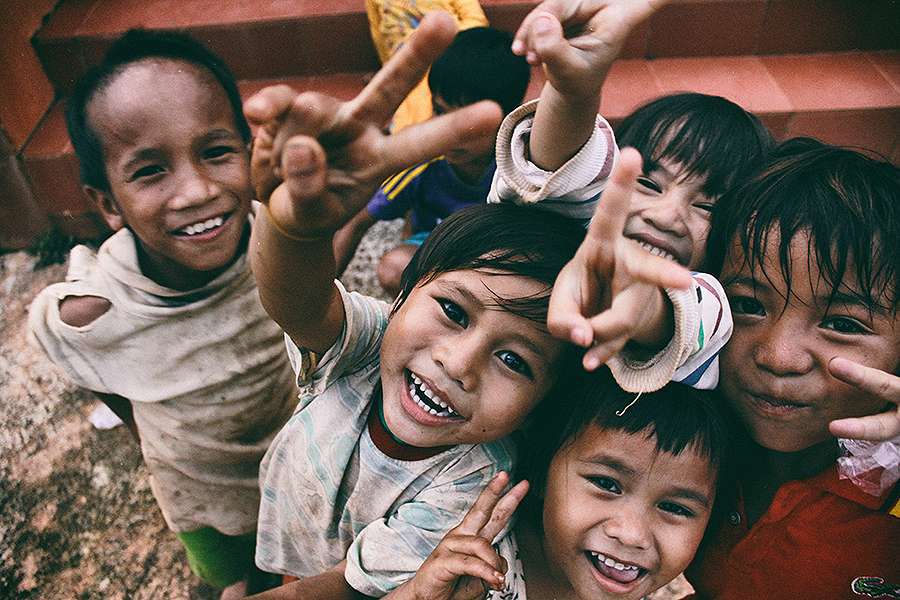Peace is something that must begin in childhood, the Holy See's representative told the United Nations, stressing the need for children to be educated in a “culture of encounter.”
“The promotion of a culture of peace among children is crucial for a future of peace. Key to installing this value in children is to educate them in a 'culture of encounter,'” said Archbishop Bernadito Auza, Permanent Observer of the Holy See to the UN. This “involves an authentic atmosphere of respect, esteem, sincere listening and solidarity, without the need to blur or lessen one’s identity,” he said.
The archbishop spoke at the High-Level Forum on a Culture of Peace in New York City on Sept. 7, noting that the forum's focus on childhood development coincides with the 100th anniversary of the first apparitions of Our Lady of Fatima. He said Our Lady's message of peace is especially relevant today “where violent conflicts, acts of terrorism, utter violations of fundamental human rights and extreme poverty suffocate effort for peace.”
Schools should educate children on civil discourse, or what Pope Francis calls a “grammar of dialogue,” said the archbishop, which allows for a harmony of religious and cultural diversity. He said this formation will enable children to engage in intellectual conversation and enhance the ability to search for the truth together, thus enabling the culture of peace. “Such a culture would enable children to respond actively and constructively to the many forms of violence, poverty, exploitation, discrimination, marginalization, and other indignities.”
This culture of encounter begins with an understanding of human dignity, he said, noting that any reduction of this vision of the human person leads to injustice and inequality.
Archbishop Auza said the world’s nations should aim to deter practices that are destructive to the person, including violence and the proliferation of weapons, and should instead promote forgiveness and non-violent resistance. “In this respect, fostering a culture of peace entails persevering efforts toward disarmament and the reduction of reliance on armed force in the conduct of international affairs.”
The opposite, he said, reinforces conflict and diverts resources away from development and towards military ends.
“Moreover, a culture of peace can only thrive in a culture of forgiveness. Forgiveness is central to reconciliation and peace-building, because it makes healing and the rebuilding of human relations possible.” The archbishop said this forgiveness is not a lack of justice, but instead identifies evil as what it is, and involves “the courageous choice of not allowing the wounds of the past to bleed into the present and future.” And as violence breeds more violence, the injustices against the human person must be fought and rooted out by means of nonviolence, he said.
Quoting Pope Francis's 2017 message for the World Day of Peace, he called peace a gift from God, but said it is also a challenge and commitment because it is a good that needs constant effort “to seek and build.” In a challenge to the assembly, Archbishop Auza reiterated the call of Saint John Paul II to rise “above the cold status of an administrative institution … to become a moral center” where countries have a home to become a “family of nations.”

